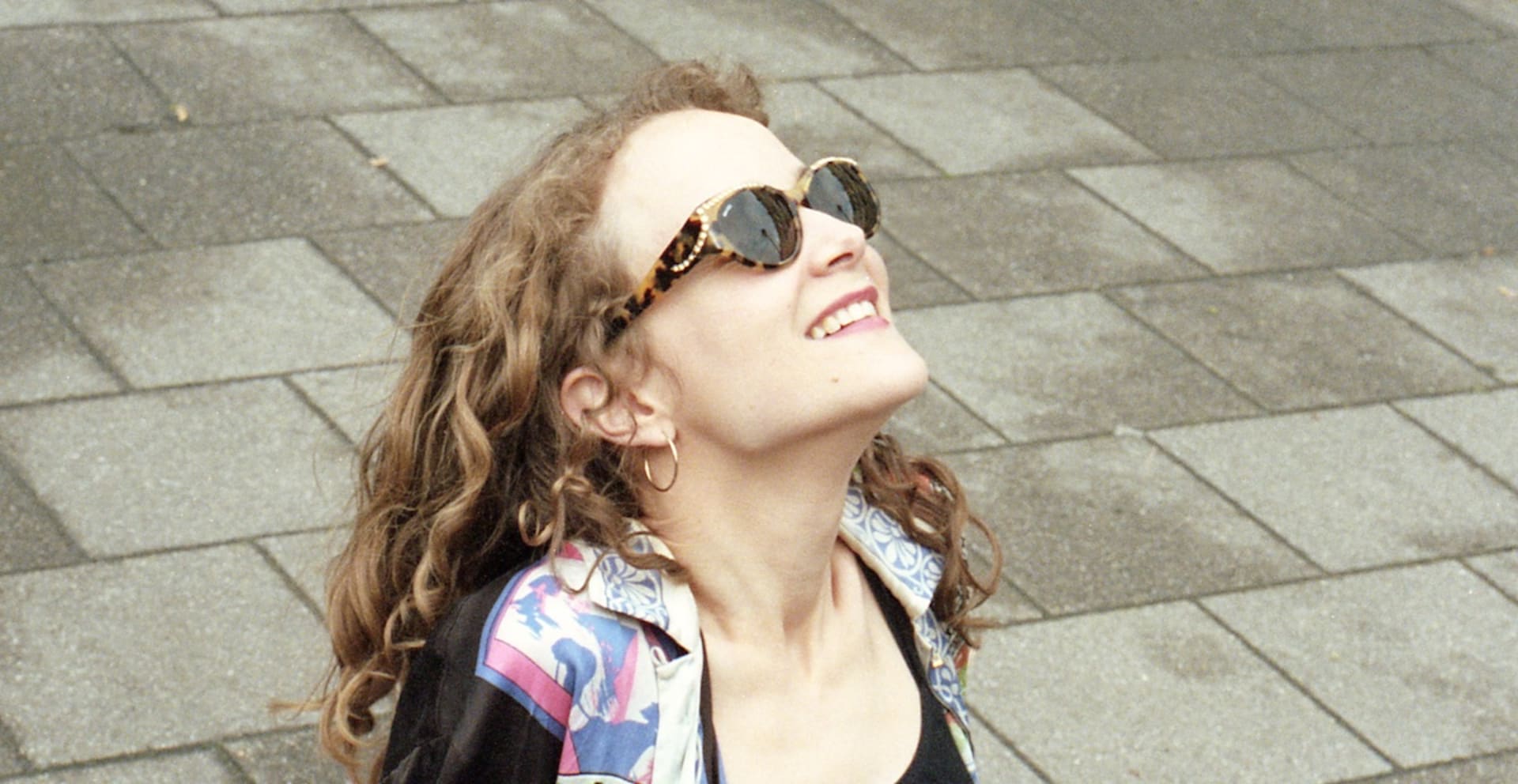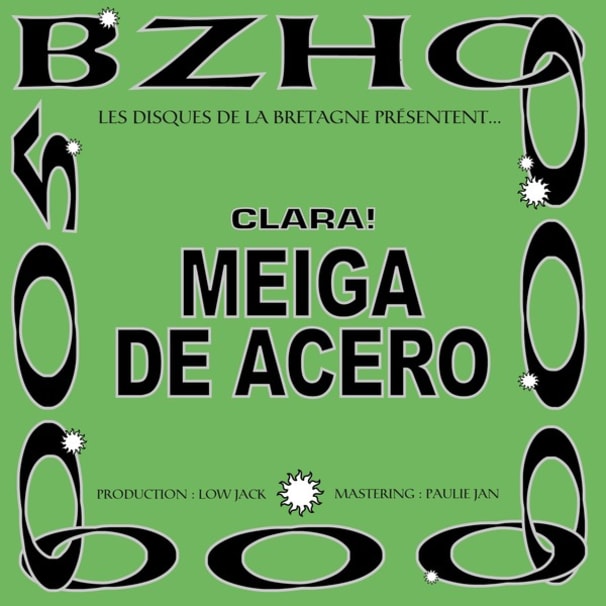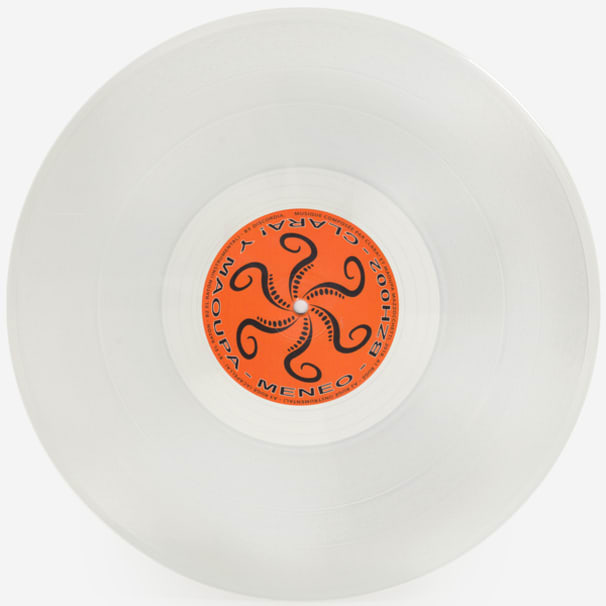
A Conversation With Clara! About Belgium, PRR! PRR! And The Enduring Appeal Of Reggaeton
Clara! is a Brussels-based DJ whose incredible 'Reggaetoneras' mixtapes highlight the overlooked female voices of the genre.
Reggaeton, as a genre, isn’t what most people would consider delicate or “ladylike”, but that’s precisely what draws up-and-coming DJ, vocalist and producer Clara! to it. For the last few years, she has been reinforcing the genre’s oft-forgotten feminine voice, doing her part to contribute to the explosive resurgence the genre has seen in recent years.
Originally born in Spain, Clara! resides in Brussels, where she is a member of on-the-rise Belgian crew PRR! PRR! (see our previous article about her label mate DJ David Goblin) In 2015, she released the first of three Reggaetoneras mixtapes via her Soundcloud with two others issued by Editions Gravats, a French label run by Low Jack and Jean Carval. Her most recent release, Meneo, created in collaboration with Maoupa Mazzocchetti, marked the start of her career as both a producer and a singer.
As a curator, Clara! is devoted to excavating reggaeton’s archives, providing long-overdue exposure to the genre’s female artists who have been mostly overlooked by the otherwise male-dominated scene. With her recent debut as a vocalist, she sings about dance floor politics and customs to bring the scene’s gender-biased stereotypes to the surface.
We sat down with the artist to talk about breaking barriers, her foray into singing and producing and her part in furthering reggaeton’s legacy.
How did your upbringing in Galicia influence your decision to make music? What is the music culture like there and how did it influence your stance on reggaeton today?
I began making music and DJing quite late—only about 3 years ago. I’ve been in Brussels for seven years now, so I wasn’t in Galicia when I started. I’ve always loved music and had gone to a lot of concerts, but I didn’t start mixing until my friend Juliette (DJ Amigo III) asked me to DJ a small party with friends.
The Galician music scene has changed a bit, but when I left, indie pop-rock and mainstream pop were the most common sounds there.
I sometimes play traditional Galician tracks in my mixes, and I want to include more of it and introduce it in my music.
You’ve mentioned before that the first time reggaeton really stuck with you was at the club Pirámide. What was so special about that time?
My love for reggaeton—which was especially popular in Spain from the 2000s onward—comes from my teenage years, when I’d hear it at parties. I went to Pirámide when I first began going to clubs, and although I mostly went to the teenage ones that closed at around 10pm, the music played inspired me. I spent most of my youth dancing at parties and alone in my room, like Britney Spears in the movie Crossroads.
Can you talk about your first DJ experiences and how you think you’ve progressed since then?
I began DJing at small parties with friends with just a computer—it wasn’t serious at all. After that, I did the first Reggaetoneras tape and began to get some proposals, but it was all very weird because I was just learning how to DJ while raising a baby at the same time. DJing can also be difficult to learn at your desired pace because of high equipment costs. Owning CDJs is not like owning a guitar. You’ll most likely have to find someone who will let you use their equipment, which can take some time.
The first “real” gig I got was at a festival in Glasgow called Counterflows. Our son was not even four months old at that point. That’s when it all became very real for me. I didn’t follow the typical steps most DJs take to gradually warm up to playing a festival. I went from doing nothing at all to making a leap and playing to this big crowd, and they had no idea it was my first time. It was very scary but also very empowering. The vibes were amazing, everyone was dancing, and I remember telling the DJ who played before me, “I really don’t know how to use the machine. If I do something wrong, you can tell me.”


Would you say that’s your favorite aspect of DJing?
I really DJ for the music. I love discovering new music. Searching for transitions in mixes is so fun for me—like that special moment when you’re at the computer and you realize, “Oh! This song would be perfect with this song.” It’s like a puzzle. Doing the Reggaetoneras mixes is very nice because it’s like searching for gold on the internet. I dig and dig, and every time I find a new track I like, I get more excited.
I also love when I play and someone who never listens to reggaeton comes up to me and tells me, “Wow I had a lot of prejudice about this, but I love the production.” There are people who come from more techno and experimental backgrounds who enjoy the music I play and realize there are actually really notable things about it. This happened with Maoupa, for example. He came to a party where I mixed, just as a friend giving support, and he felt inspired and said we had to do something together. This is how Clara! y Maoupa was born.
You’ve mentioned that most people you knew at the time that you began DJing didn’t know many female reggaeton artists at all. How did you start building your archive, and are there any specific places that you find them? Were they difficult to find?
For the first Reggaetoneras tape, I mostly searched on YouTube and old blogs. But for the second one, I posted on the Sister’s page, which is for female artists and DJs, and on the Classical Trax Facebook. Once people started sending me songs, I realized I knew some of the artists like Lorna and La Factoría from my teenage years, and looking back, I saw that they just didn’t get the same level of success as these other very popular male artists like Nicky Jam or Dom Omar.
Why did you move to Brussels?
I was completely lost after getting my degree in fine arts, so I followed my mom’s advice to move to Brussels and get my master’s degree in film. Even though I was very unhappy studying here, I love Brussels and am grateful to have moved.
Is there a reggaeton scene in Belgium?
No. I mean, if you go to a Latino bar they will probably play it, but in general, no. Now reggaeton is a very trendy thing, so you’ll hear DJs play it sometimes.
Can you tell me about your position in PRR! PRR! and how it formed?
DJ David Goblin is my ex-partner, and DJ Cloarec is a very good friend. When I first met them, they were just talking about starting the label. Initially, I considered myself as just the girlfriend, but now I have taken on more responsibilities. As we share the same sense of humor, they ask my opinion on most things, but I am not the one who is ultimately making the label decisions. And I participate with my little money for the productions.
Can you talk about the meaning behind Reggaetoneras? What does it mean to you?
I was frustrated and confused by the lack of visible female Reggaeton artists.
I feel a lot has changed in the music industry within the past few years. I often hear things like, “It’s not good to give visibility to only females, the importance is in the music, not the sexes” or “Only searching for female artists is not good for gender equality”. At first, I could see credibility in that, but If I never actively and adamantly searched for these reggaetoneras, I would have never listened to them or even heard of them, it is about showing that these female artists exist.
For Reggaetoneras De Estribillo, the mixtape is composed of 2000s reggaeton tracks popularized by male singers that used uncredited female vocals, exploiting the female voice to add a “sexy” moment.
You’ve mentioned that people describe reggaeton as macho. What’s your opinion on that? Do you think female reggaeton artists approach their music differently than men?
I think people see the genre as macho because it’s very sexual. That idea in and of itself is very macho because when you say that, you are limiting that sexual attitude to only men. Women should also be able to sing about sex.
There are differences. Women usually sing about themselves being the objects of desire, and men often sing about women also being that object. But, fortunately it’s not always like that, and sometimes the roles switch.


It was great hearing your project Meneo because that was the first time you released your own singing and production work. Are there any central themes behind your lyrics?
I am inspired by the ways some reggaetoneras, like K-Mill or La Mulata, sing about how men dance. I use this in “Discordia”. “El Ratón” is about something that has always bothered me in clubs, which is when guys push and push to flirt with you no matter how many times you say no. I don’t exclusively write about the dance floor, though. I also like to explore other themes, like astrology. “Maestro”, the digital bonus track from the Boomkat Christmas special edition, is a joke about mansplaining.
What else do you have coming up?
A new Clara! y Maoupa’s album is in the oven. It should be out in July.
Is there anyone that you find is a major source of inspiration for you?
Ivy Queen, especially with her song, “Pa La Cama Voy.” She sings: “Yo quiero bailar, tu quieres sudar, y pegarte a mi, el cuerpo rozar, Yo te digo si, tu me puedes provocar… eso no quiere decir que Pa la cama voy!” (I want to dance, you want to sweat and stick to me, and rub your body, I tell you yes, you can provoke me…that does not mean I’ll go to bed!)
Is it difficult to balance raising a child with being a musician?
I’ve seen this question asked to a lot of DJs and musicians who are mothers but rarely to a father. For me, it’s hard, but I don’t think I’m a good person to answer that. I was just beginning when Félix was born. I can’t imagine how difficult it is for someone to have music as their full-time job, because you would have to travel a lot and work late nights. Our son didn’t sleep a full night until he was 18 months old, so it was very difficult for me to stay awake and work. I’ve been lucky the past few years because I had a grant, but it’s finished now, and I’ve been working at a restaurant. Having a job and a kid while still making time to do music is crazy hard.
Are there any modern reggaeton artists that you really like?
A lot, reggaeton, dembow or whatever: Tomasa del Real, Ms Nina, Karol G, Jenn Morel, La Japonesa, Lapili, La Goony Chonga, Bad Gyal, Milka la Más Dura, La Materialista, La Insuperable, Bela Mami, etc.
What do you think about the current reggaeton trend? Though you’re not from Latin America, do you ever feel territorial over reggaeton because you grew up with it?
I totally understand why people might feel that I’m appropriating music that’s not technically mine—because I’m Spanish, not Latin American. But I would never feel territorial over reggaeton because it’s not Spanish, even if it’s very present there. I think you need to have respect for where music comes from and give the artists credit.
Published May 22, 2019. Words by Ava Burnes, photos by Anne-Sophie Guillet.
